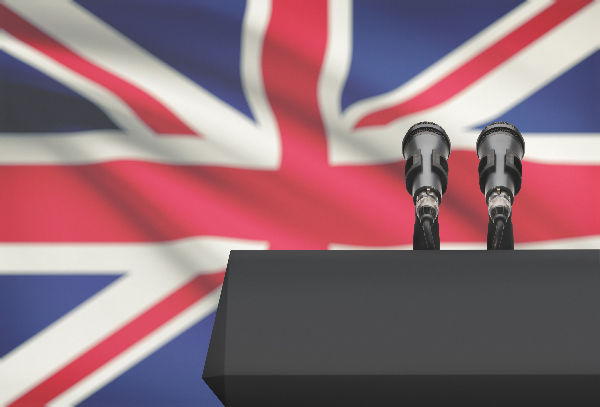How to prevent vocal bias from influencing your vote
- Susan Room
- Jun 24, 2024
- 4 min read

As the UK General Election of 2024 approaches, it's essential to recognise the biases that can influence our voting decisions. One often overlooked yet substantial factor is vocal bias.
Research indicates that the sound of a politician's voice can significantly impact how we vote.
This article aims to raise awareness of vocal bias and offer tips to help voters make decisions based on content rather than sound.
What is Vocal Bias?
Vocal bias refers to the tendency to judge people based on characteristics of their voice, such as accent, pitch, or nasality. These judgments can be quick and subconscious, significantly affecting our perceptions and decisions.
For example,
accents can evoke stereotypes and prejudices, impacting voter perceptions; some would say it even poses a critical challenge to democracy
lower-pitched voices are often perceived as more authoritative, unfairly benefiting those with higher-pitched voices, and
nasal voices can be perceived as less competent and intelligent, despite having no correlation with actual competence or intelligence.
These biases have a widespread influence on electoral processes and can hinder the selection of qualified candidates based on their abilities rather than their vocal characteristics.
The Challenges of Discussing the Voice
Media coverage of politicians' policies often includes remarks about their voices. While debate about the human voice is welcome, the discourse often reveals how challenging and risky it is to discuss or write about vocal qualities for the following reasons:
Identity Ties: Voice is closely linked to identity, so commenting on or giving feedback about someone's voice requires considerable knowledge, care, and sensitivity.
Subjective Perception: Perception of voice is highly subjective; there's no universally 'good' or 'bad' way to speak. For instance, I wouldn’t say, as a journalist recently did on Times Radio, that Emily Thornberry has the 'best' voice in politics.
Complex Vocabulary: Accurately describing the human voice requires a complex vocabulary that can be easily misunderstood. Even experts have differing views and preferences when discussing vocal characteristics and qualities.
Accents: A crucial part of voice, accents trigger 'short-cut guesses about a person', limit social mobility and fuel discrimination. Actors need to be great at learning and adapting them. For everyone else, as long as you're understood, there's no need to change your accent!
Immutability: Some people, despite their efforts to 'improve' their voice, cannot do so due to medical, psychological, or other reasons. Setting standards or making judgments about vocal qualities can be deeply unhelpful and exclude them from the conversation.
Because of these challenges, I rarely comment on individual voices because I want to avoid vocal bias. Instead, I prefer to share insights on how people consciously or sub-consciously use and flex their voice, words and body language, what this might reveal about them, and how it might impact others.
Nevertheless, in this blog, I allow myself to comment on the voices of six politicians. Why? Because the way they speak might influence your voting decision much more than you realise.
Evaluating Politicians' Voices

When I listen to politicians like Keir Starmer, Rachel Reeves, and Rishi Sunak, I hear a distinct 'nasal' quality, a 'head voice' created by a tight throat and resonance in the skull and nasal passages. I find this irritating, which makes it hard for me to listen actively to what they are saying, or to listen for very long. It's important to note that this is my personal reaction. It has nothing to do with their political competence. But I know others who have similar reactions.
In contrast, for politicians like Angela Rayner, Oliver Dowden, and Jeremy Hunt it's their distinct accent that stands out for me. Angela Rayner's Ashton-under-Lyne accent, for example, makes her sound more authentic and relatable to some voters. It's unsurprising, as she openly takes pride in her accent. When people own something they're proud of, they speak more authentically about it. However, Oliver Dowden and Jeremy Hunt's upper-middle-class English accents might evoke different associations.
Strategies to Overcome Vocal Bias at the Ballot Box

To overcome vocal bias, we must first acknowledge the impact it can have on our voting decisions.
Only then can we work towards finding ways to confront and challenge our bias to help us make more informed choices.
How can we avoid vocal bias when voting? Here are some tips:
Focus on Policies and Actions: Instead of relying solely on a politician's voice, consider their policies and track record in effecting positive change.
Educate Yourself: Learn about different accents, speech patterns, and pitch ranges to understand that there is no 'right' way to speak.
Question Your Biases: Be aware of any personal biases you may hold towards certain voices and challenge them by actively seeking out diverse perspectives.
Look Beyond the Surface: Remember that a person's voice is just one aspect of their identity and does not define them as a whole.
Substance Over Sound
By following these tips, we can make more informed and fair decisions when voting, rather than being swayed by vocal bias.
Let's focus on what truly matters - policies and actions (the substance) - instead of judging politicians based on their voices (how they sound). In doing so, we can strive for a more inclusive and diverse political landscape.

The Business Voice Coach
*Sources:

Comentários